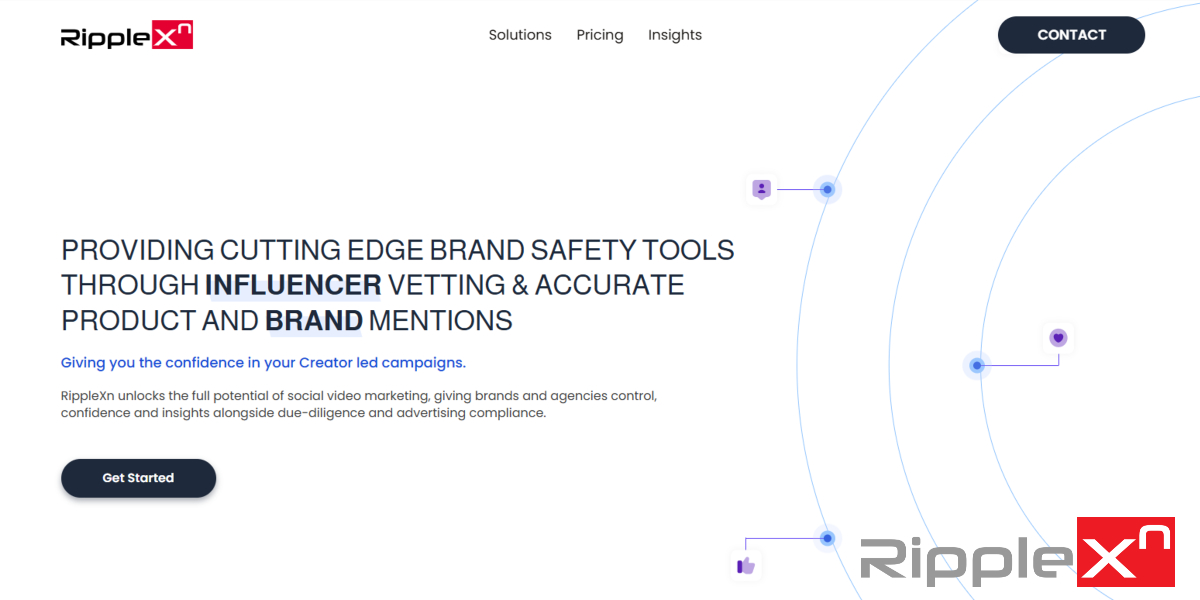In the ever-evolving landscape of digital marketing, the interplay between cookies and influencer marketing has become increasingly significant. Cookies, particularly first-party cookies, play a crucial role in tracking user behavior, enabling personalized marketing strategies, and enhancing the overall user experience. Influencer marketing, on the other hand, leverages the influence of individuals with large followings to promote brands and products effectively. This article explores how first-party cookies support influencer marketing, the challenges associated with their use, and best practices for optimizing their benefits.
What are First-Party cookies?
First-party cookies are small pieces of data stored on a user's device by the website they are currently visiting. Unlike third-party cookies, which are set by domains other than the one being visited, first-party cookies are created by the website the user is interacting with, thus providing a more direct and secure way to collect data.
Advantages of first-party cookies
First-party cookies offer several advantages:
- Enhanced User Experience: They allow websites to remember user preferences, login details, and browsing history, leading to a more seamless and personalized experience.
- Improved Data Accuracy: Since these cookies are set by the website being visited, they provide more accurate data on user behavior and preferences.
- Better Privacy: Users have more control over first-party cookies, as they are generally subject to the same privacy policies as the website itself.
Current trens in Cookie regulations
Recent regulations, such as the General Data Protection Regulation (GDPR) and the California Consumer Privacy Act (CCPA), have impacted how cookies are used. These laws emphasize user consent and transparency, requiring websites to disclose their use of cookies and offer options for users to manage their preferences.
And what is the Google involvement?
As of 2024, Google has been actively evolving its approach to first-party cookies and broader privacy concerns. Here’s a summary of the current situation:
- Google's phased approach: Google has been transitioning away from third-party cookies while still supporting the use of first-party cookies. The shift is part of its broader privacy and security strategy to enhance user privacy while maintaining the efficacy of digital advertising.
- Privacy Sandbox initiative: Google’s Privacy Sandbox initiative aims to replace third-party cookies with new privacy-preserving technologies. This includes proposals like the Federated Learning of Cohorts (FLoC) and the Topics API, which seek to provide aggregated user data without compromising individual privacy.
- First-Party cookies continuation: While Google is phasing out third-party cookies, first-party cookies remain an essential tool for website functionality and user experience. They are used for purposes such as remembering login details and personalizing content. Google supports their use as they are generally considered less intrusive compared to third-party cookies.
- Timeline and Deadlines: Google's initial deadline for phasing out third-party cookies was set for 2022 but has been extended to 2024 (and likely to be again), allowing more time for developers and advertisers to adapt to the new technologies introduced by the Privacy Sandbox.
The role of cookies in influencer marketing
How cookies support influencer campaigns
First-party cookies are instrumental in influencer marketing by tracking user interactions with influencer content. They enable marketers to gather data on how users engage with posts, ads, and promotions, allowing for a better understanding of the campaign's impact.
Data collection and personalization
Cookies help in collecting valuable data about user behavior and preferences, which can be used to tailor influencer campaigns more effectively. By analyzing this data, marketers can create more personalized and relevant content, enhancing the chances of conversion.
Measuring campaign effectiveness
Cookies provide insights into how influencer marketing campaigns perform by tracking metrics such as click-through rates, conversion rates, and return on investment (ROI). This data is crucial for evaluating the success of campaigns and making informed decisions for future strategies.
Challenges and considerations
Privacy concerns
While first-party cookies offer several benefits, they also raise privacy concerns. Users are increasingly aware of how their data is being used, and there is a growing demand for transparency. Marketers must ensure they comply with privacy regulations and communicate clearly with users about data collection practices.
Data accuracy and attribution
Accurate data collection and attribution can be challenging. Factors such as cross-device tracking and cookie deletion can impact the reliability of data. Marketers need to adopt robust tracking solutions and be mindful of potential data discrepancies.
Evolving regulations
As privacy regulations continue to evolve, marketers must stay updated on changes and ensure their practices comply with new laws. This includes revising cookie policies and implementing measures to obtain user consent where required.
Best Practices for Using First-Party Cookies in Influencer Marketing
Building trust and transparency
To build trust with users, marketers should be transparent about their data collection practices. Providing clear information about how data will be used and offering options for users to manage their preferences can enhance user confidence and compliance.
Leveraging data for better targeting
Utilizing first-party cookie data for targeting can improve the effectiveness of influencer campaigns. Marketers can use this data to identify key audience segments, tailor content to specific interests, and optimize campaign performance.
Optimizing campaigns
Regularly analyzing data collected through first-party cookies can provide valuable insights for optimizing influencer marketing campaigns. Marketers should continuously monitor performance metrics, adjust strategies as needed, and leverage data to enhance campaign results.
The Future of Cookies and Influencer Marketing
Emerging trends and technologies
The future of cookies and influencer marketing is likely to be shaped by emerging technologies and trends. Advances in artificial intelligence (AI) and machine learning could enhance data analysis and personalization, while developments in privacy-preserving technologies may offer new ways to track and target users without compromising privacy.
Potential alternatives to Cookies
As privacy concerns and regulations increase, alternatives to cookies are gaining attention. Techniques such as server-side tracking, browser fingerprinting, and context-based advertising may provide new methods for tracking user behavior and measuring campaign effectiveness. However, these alternatives also come with their own set of challenges and considerations.
Preparing for a Cookie-less future
Marketers should begin preparing for a future with fewer cookies by exploring alternative tracking methods and focusing on building direct relationships with their audience. Emphasizing first-party data collection through other means, such as email sign-ups and loyalty programs, can help maintain effective marketing strategies even as cookie usage declines.
This is just the start…..stay informed
First-party cookies play a vital role in influencer marketing by enabling accurate data collection, personalization, and campaign measurement. While they offer numerous benefits, including enhanced user experience and improved targeting, they also present challenges related to privacy and data accuracy. As regulations evolve and new technologies emerge, marketers must adapt their strategies to ensure compliance and optimize their use of cookies. By staying informed and embracing best practices, marketers can continue to leverage first-party cookies effectively while navigating the changing landscape of digital marketing.






